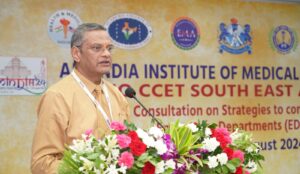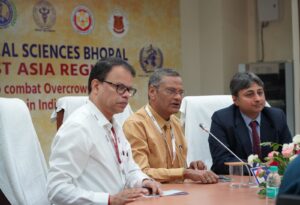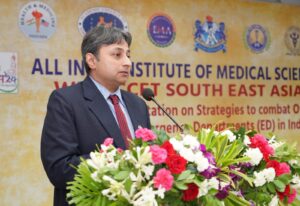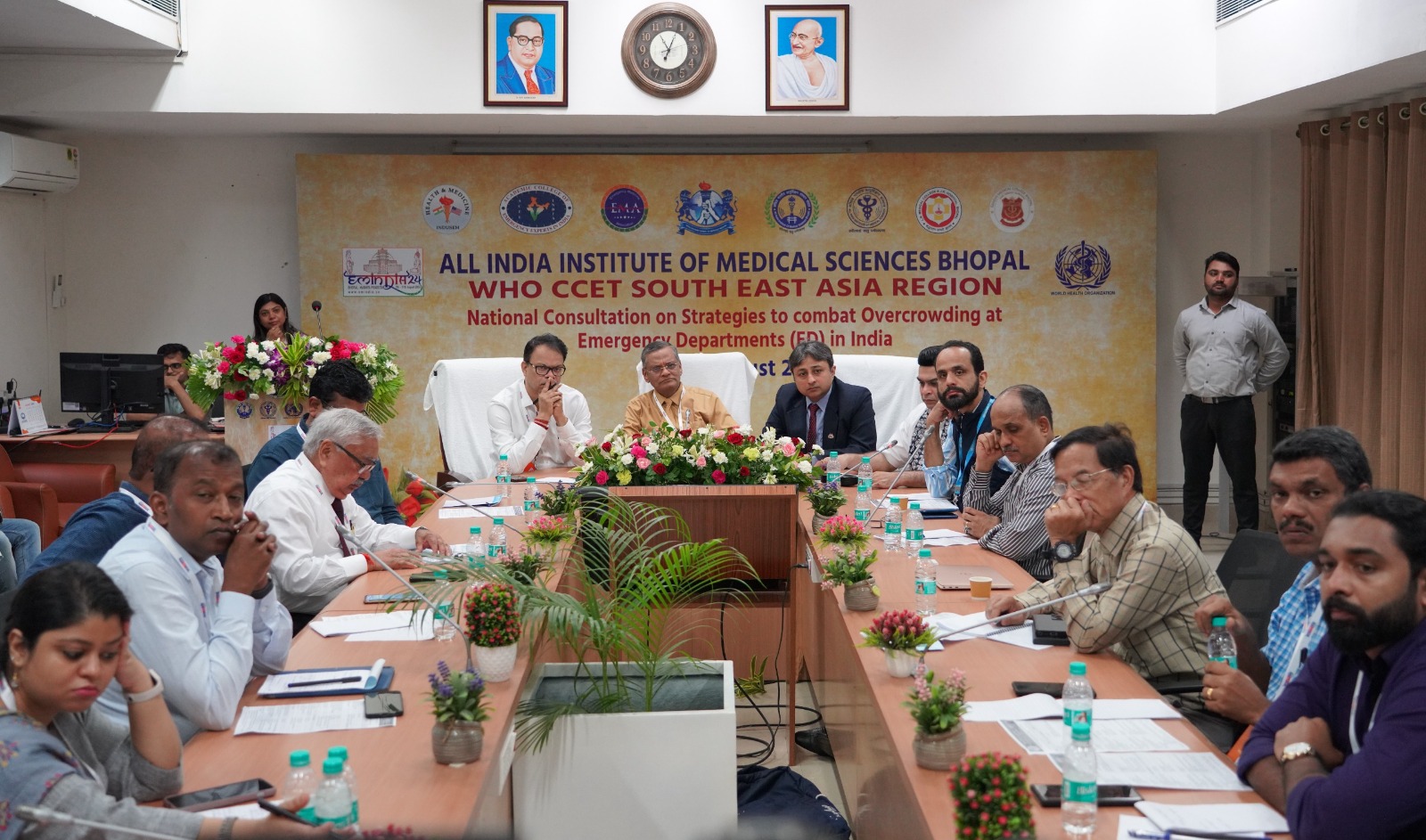CNN Central News & Network–ITDC India Epress/ITDC News Bhopal: A two-day national consultation meeting on “Strategies to Tackle Congestion in Emergency Departments across India” was inaugurated at the All India Institute of Medical Sciences (AIIMS). Speaking virtually on the occasion, Health and Family Welfare Secretary, Apurva Chandra, praised AIIMS’ efforts, stating that despite limited resources, AIIMS is efficiently managing its Trauma and Emergency Medicine Department. Emergency medicine is a specialized field, and I invite Professor Ajay Singh to present courses related to emergency medicine to the Ministry and NITI Aayog. Joint Secretary Ankita Sharma Bundela, congratulating the organizers virtually, said, “Handling trauma and emergency cases is very challenging. This field requires dedicated and trained human resources.”

AIIMS highlighted the serious issue of congestion, stating, “Congestion is a serious matter, and we have developed SOPs for an emergency of concern. Efforts are underway to implement this SOP in Uttar Pradesh and Madhya Pradesh. Consequently, the entire state will need to manage it efficiently. We have established a special pediatric emergency unit, as children’s needs are different.”

Dr. Sagar C. Galwankar, CEO of INDSAM, emphasized the importance of innovative approaches and dedicated efforts in emergency medicine. Dr. Sagar said, “Congestion in emergency departments is a serious issue that requires immediate and innovative solutions. For the past 20 years, we at INDSAM have been committed to advancing the field of emergency medicine, establishing specialized units, and promoting a culture of excellence and innovation. Our efforts must go beyond traditional approaches; we need to think outside the box to develop comprehensive strategies that can effectively manage the increasing patient load in emergency departments.”

Dr. Sanjeev Bhoi from AIIMS New Delhi and the Director of the WHO Collaborating Centre said that recognizing the role of trained manpower in this field is also essential. We must invest in training programs for paramedics and other healthcare professionals to ensure they can efficiently handle emergency cases. The critical time from the accident site to hospital arrival is crucial for saving lives, and our focus should be on optimizing this period through swift and efficient intervention.
The meeting included various sessions on different aspects of emergency medicine, such as challenges of congestion, simulation and education, telemedicine, and capacity management. Participants engaged in intense discussions, shared their ideas, and proposed innovative solutions to improve emergency services across India. More than 150 experts from across the country participated in this program, aimed at addressing the serious issue of congestion in emergency departments.







